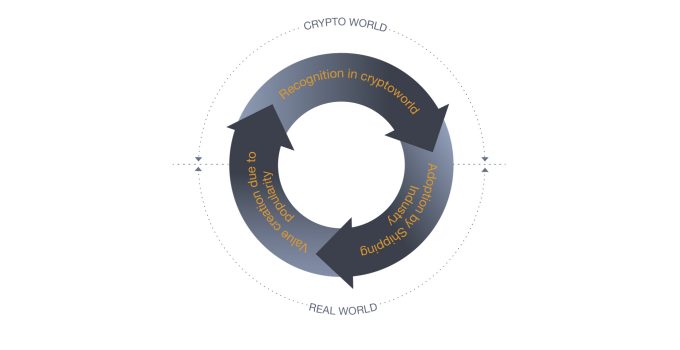Li & Fung weaves its way towards fully digital apparel supply chain with sewbot deal
The era of the digital textile supply chain came a step nearer yesterday after Hong ...

Blockchain initiative 300cubits has created a new type of cryptocurrency to solve liner shipping’s US$23bn “booking shortfall” conundrum.
Named TEU, the de-facto industry currency is distributed as tokens on the Ethereum network and will be tradeable on various global cryptocurrency exchanges.
300cubits claims the tokens will help ...
Keep our news independent, by supporting The Loadstar
Red Sea crisis has driven most new capacity into extended Asia-Europe trades
Explosions and 'out-of-control' fire reported on Wan Hai box ship
Carrier price hikes hold, driving spot rates higher as space gets scarcer
Crew forced to abandon ship in latest fire on vessel carrying EVs
The Loadstar Podcast | Transport Logistic and Air Cargo Europe 2025
Asia-West Africa ULCV deployment opens new markets for carriers
Turkish Airlines falls foul of air safety regulations, claims India's aviation authority

Comment on this article
dav
August 21, 2017 at 9:28 amgreat idea…industry is in desperate need of exactly…THIS!!!!!!!!
DANIEL Richard JACKSON
August 24, 2017 at 9:27 pm” ……adding that only 100,000,000 tokens would be created to ensure their long-term value.”
All these crypto-currencies have a similar self serving, speculative element….
300cubits is yet another, essentially ponzi scheme, under guise of being
some kind of economic grease-miracle…